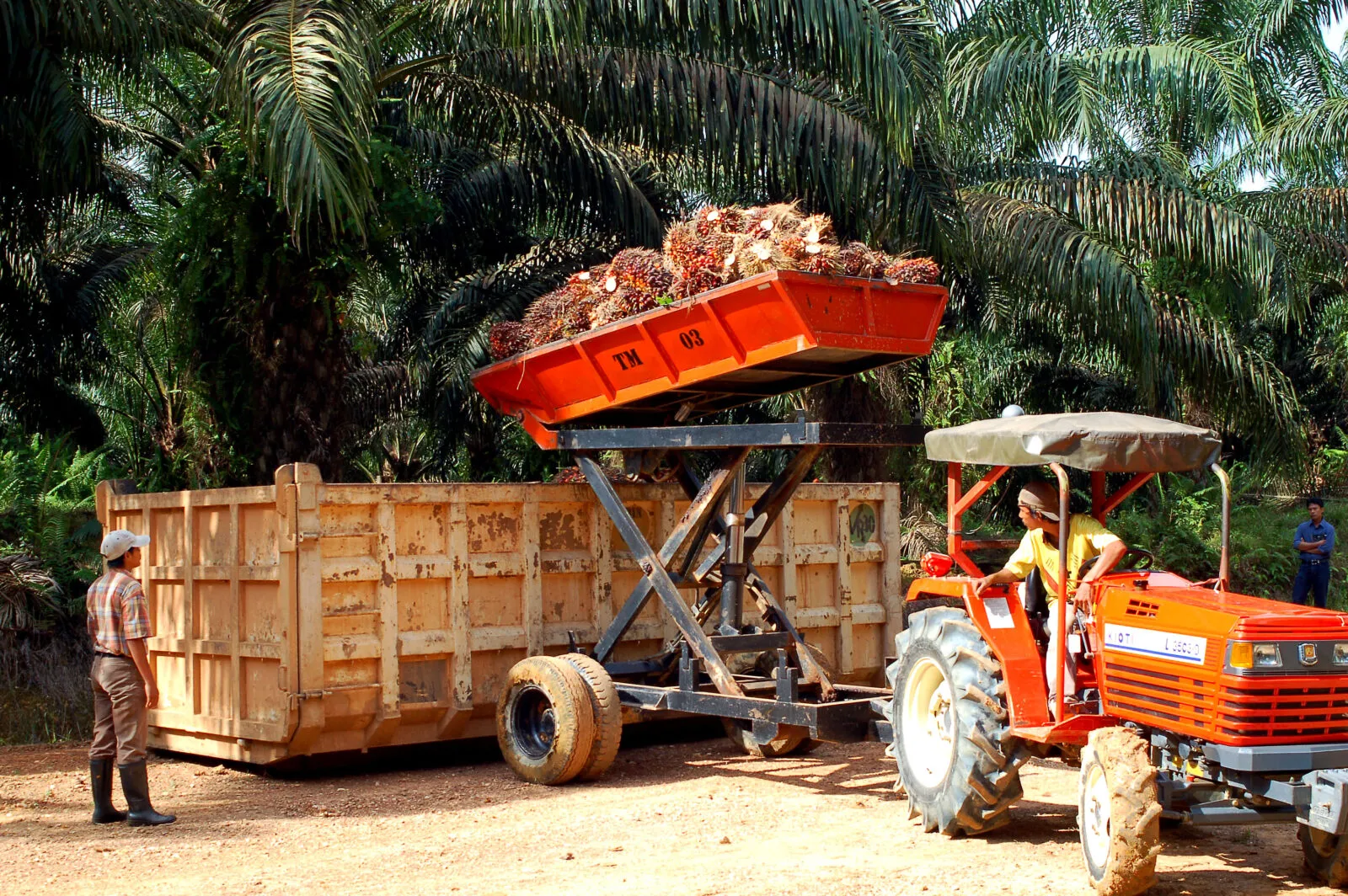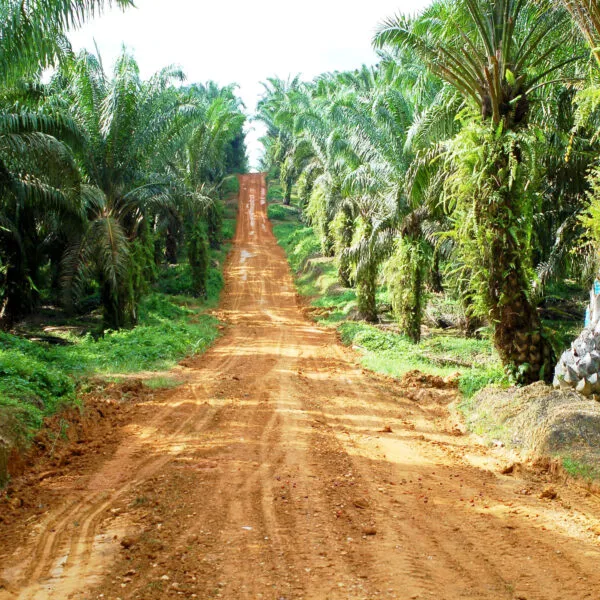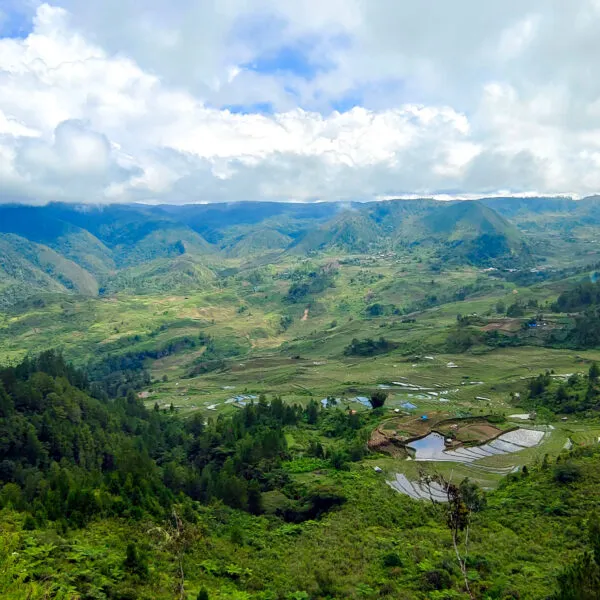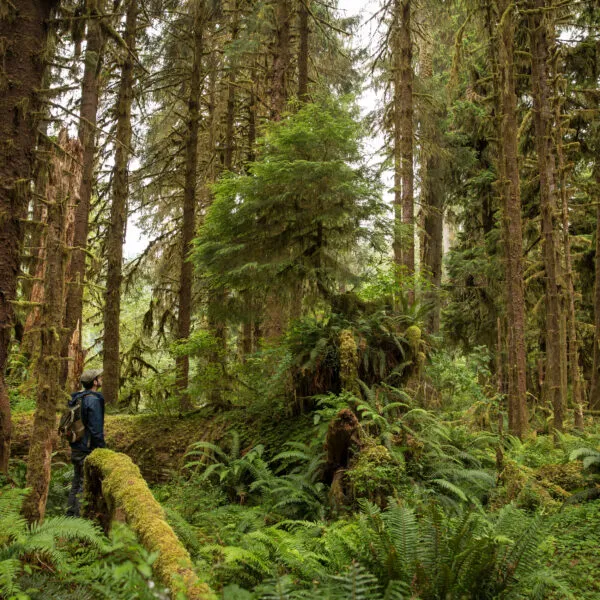Valued for its versatility and efficiency as a crop, palm oil has quickly become the world’s most produced and consumed vegetable oil. In fact, palm oil accounts for 40 percent of the world’s vegetable oil while production takes up just under 6 percent of the land used to produce all vegetable oils. However, the popularity of palm oil comes with a high price. Cultivated in ecologically precious tropical landscapes across Africa, Asia, and Latin America, the rapid expansion of palm oil plantations has fueled deforestation, greenhouse gas emissions, and the displacement of Indigenous forest communities. As demand continues to grow, it’s urgent that we transform the way palm oil is produced.
At the Rainforest Alliance, we focus our efforts on two key enablers of market transformation: companies and smallholder farmers who produce about 40 percent of palm oil globally. By mapping companies palm oil supply chains with our Palm Industry Platform and conducting risk analyses, we help increase supply chain transparency and gain a deeper understanding of the deforestation, conversion, and biodiversity risks to which companies are exposed. We also design and implement tailored interventions for smallholder farmers at the landscape level. Through these interventions, we promote better practices and help reduce deforestation.
How our Palm Industry Platform enables investment into landscapes and smallholder farmers
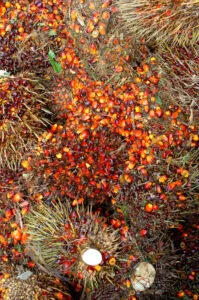
Transparency has been hard to achieve in the palm oil industry due to complex supply chains and the lack of a sector-wide approach to origin reporting. Our Palm Industry Platform is a solution for that—enabling communication between palm oil producers and buyers. At the same time, the online platform helps companies map, visualize, and analyze risks in their supply chains. Mapping supply chains through the Palm Industry Platform is a critical starting point: in order to conduct a thorough risk analysis (for example on biodiversity loss, peatland conversion, and deforestation), it is essential to first identify the regions where the oil palm was produced. This also gives greater visibility to the smallholders that produce the palm oil.
Once companies have identified supply chain risks through the platform, the Rainforest Alliance helps them translate the data into actions. We work with our corporate partners to design landscape programs to address deforestation and help smallholders improve their livelihoods. For example, in the Sintang District of West Kalimantan, Indonesia, we are bringing smallholder palm oil farmers, companies, and other stakeholders together through the mapping of farmland and other activities.
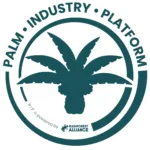
The unique technology behind the Palm Industry Platform
More than just a platform for entering and analyzing data, the Palm Industry Platform represents an innovative way of approaching supply chain mapping. The platform combines online survey software, customer relationship management software, and data analytics—all customized for palm oil supply chains and sustainability assessment practices.
“The digital technologies underlying the Palm Industry Platform, together with the Rainforest Alliance’s expertise in the palm oil sector, are what really make it a unique digital tool,” said Ronald van Marissing, technical enterprise architect at the Rainforest Alliance.
How data is gathered through the Palm Industry Platform
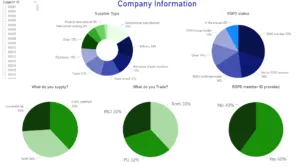
Palm oil producers simply fill out an online survey through the platform once per reporting period and the Rainforest Alliance verifies the data they provide. The data collected can be adjusted to specific company needs and includes information on the origin of the palm oil, volumes sourced, their certification status, and information on producer sourcing and sustainability policies, among other things. Information on sourcing and sustainability policies are aligned with the Accountability Framework, an internationally recognized guide of best practices for achieving and monitoring responsible supply chains.
“This offers companies in the palm oil sector a more nuanced, innovative, and bespoke approach to supply chain mapping and sustainability reporting,” explained van Marissing. “Moreover, the fact that supplier assessments and reporting through the Palm Industry Platform are guided by the Accountability Framework ensures companies are not only transparent but able to track and communicate progress in a standardized way.”
How we created the Palm Industry Platform with Unilever and the Universal Mill List
The Palm Industry Platform was initially created to support the mapping of Unilever’s palm oil supply chains.
“Unilever has a lot of suppliers and contacting all these suppliers to get data was very resource intensive,” Paula den Hartog, corporate partnerships team lead at the Rainforest Alliance, said. “So, we started creating a system for tracking supplier progress that was more efficient and less error prone. As we grew it step-by-step, we realized we could make a bigger impact if it was available for the whole industry.”
To develop the platform, we drew on our experience developing and managing the Round Table on Sustainable Palm Oil (RSPO) PalmTrace system that tracks RSPO certified oil palm products back to their origin. Building it out further, we created the Universal Mill List (UML), a collection of palm oil mill locations worldwide, in collaboration with the World Resources Institute, Proforest, Daemeter, and other partners. The UML pulls together data from large companies like Unilever and Mondelēz International, processors, traders, RSPO, and others to identify and map more than 2,000 palm oil mills globally.
How the Palm Industry Platform helps companies on their sustainability journey
The Palm Industry Platform provides companies with verified supply chain data and insights that move them closer towards their responsible sourcing goals.
It offers several key benefits:
- Supply chain transparency: understand supply chain links and traceability to the mill, plantation, and ultimately, smallholder level
- Efficiency and standardization: reduce human and financial resources spent on engaging with suppliers, tracing supplies, identifying risks, and addressing grievances
- Commitments aligned with the Accountability Framework: easily track and communicate your progress in line with the industry standard
- Direct connections to sourcing landscapes: enable impactful interventions with smallholders and other stakeholders
- A strategic partnership with the Rainforest Alliance: gain access to the Rainforest Alliance brand for corporate communications and results-based claims
Get started with the Palm Industry Platform
Are you interested in using the Palm Industry Platform for your company’s internal assessments or want to know more? Get in touch with us at palmoil_traceability@ra.org.
